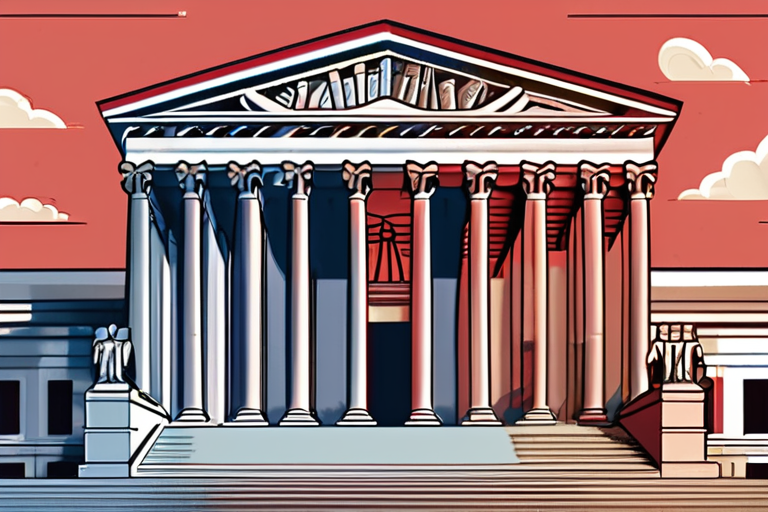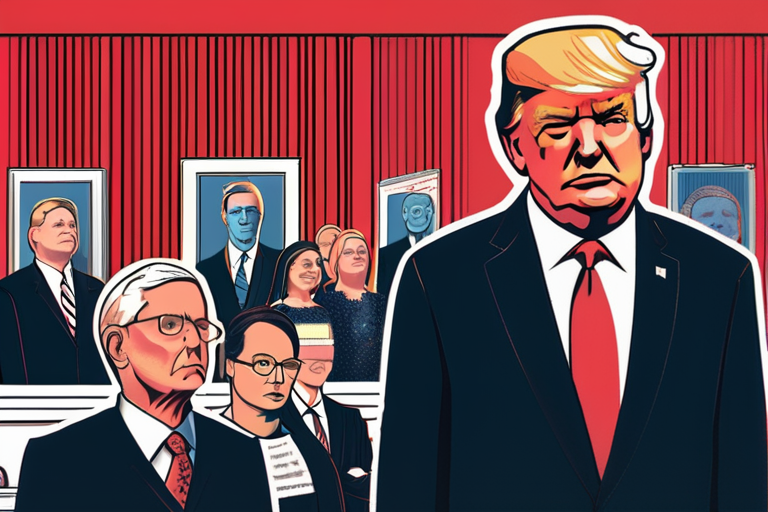Supreme Court Term Set to Open with High-Profile Cases and Uncertainty


Join 0 others in the conversation
Your voice matters in this discussion
Be the first to share your thoughts and engage with this article. Your perspective matters!
Discover articles from our community
 Hoppi
Hoppi
 Hoppi
Hoppi
 Hoppi
Hoppi
 Hoppi
Hoppi

 Hoppi
Hoppi

 Hoppi
Hoppi
Supreme Court to Weigh in on Trump's Tariffs The Supreme Court announced Tuesday that it will examine the legality of …

Hoppi
Supreme Court to Review Legality of Trump's Sweeping Tariffs, Potentially Impacting $1 Trillion in Collections In a significant development, the …

Hoppi
Supreme Court Agrees to Hear Challenge to Some of Trump's Sweeping Tariffs The Supreme Court announced Tuesday that it will …

Hoppi
US Supreme Court to Decide Legality of Trump's Tariffs The US Supreme Court has granted an expedited hearing on the …

Hoppi

Supreme Court to Decide High-Stakes Economic Policy Case The Supreme Court is poised to make a landmark decision on one …

Hoppi

Supreme Court to Decide High-Stakes Economic Policy Case The Supreme Court is poised to make a landmark decision on one …

Hoppi